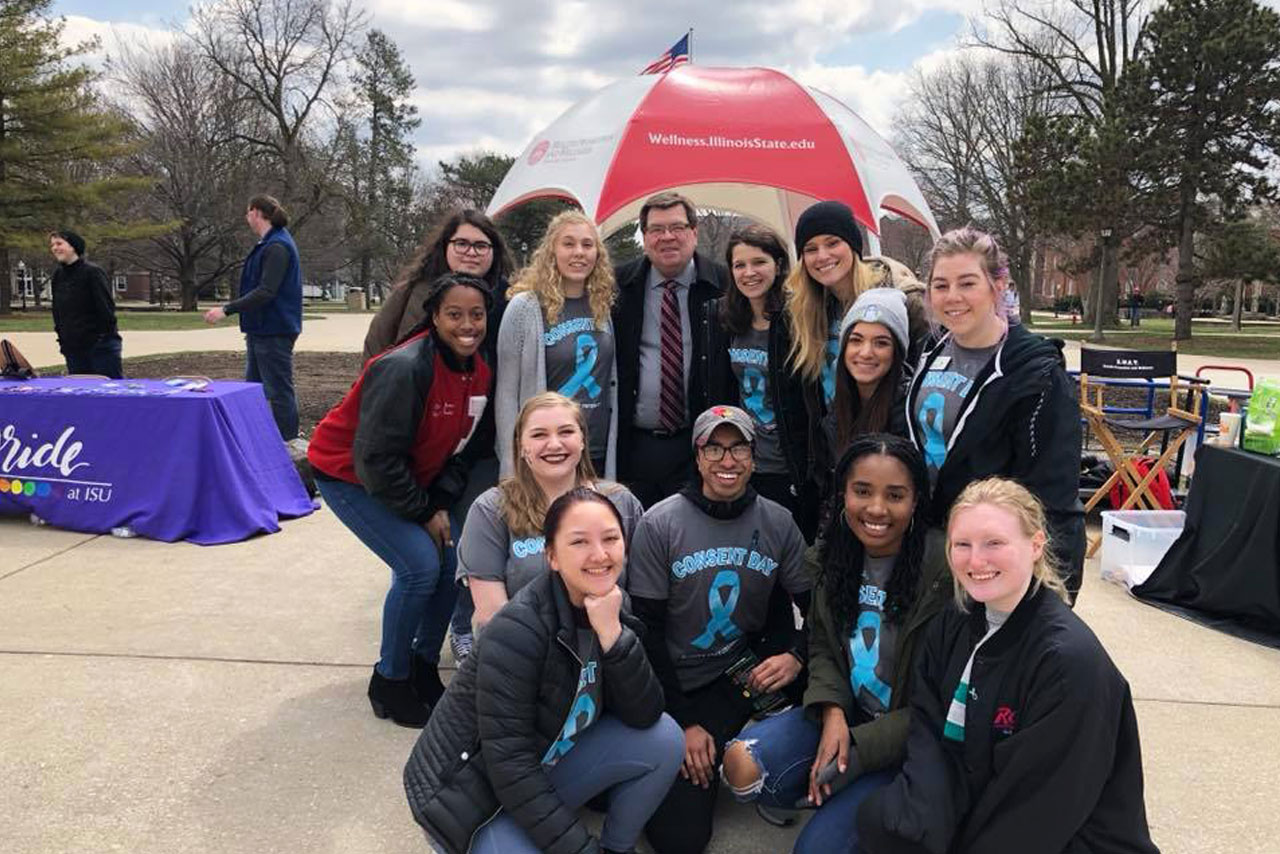April is Sexual Assault Awareness Month, and like so many Aprils before it, this is a month of advocacy, of raising awareness, and of mobilization. April is a time to pass out teal ribbons, to join others in marches and campaigns, and it is a time to highlight all the progress that has taken place to make survivor’s voices heard and to focus on healing and on prevention. But as with any cause worth fighting for—it cannot end here.
Sexual assault is and will continue to be an issue on college campuses and in every community. RAINN (Rape Assault & Incest National Network) reports that student or not, college-age adults are at a high risk for sexual violence. Male students between the ages of 18-24 years old are 78 percent more likely than non-students of the same age to be a victim of rape or sexual assault. It is also estimated that women in college are twice as likely to be sexually assaulted as they are robbed. An issue this important and prevalent should not be thought of only once a year. We, as a campus and a community, cannot afford to be passive bystanders.
(Rape Assault & Incest National Network) reports that student or not, college-age adults are at a high risk for sexual violence. Male students between the ages of 18-24 years old are 78 percent more likely than non-students of the same age to be a victim of rape or sexual assault. It is also estimated that women in college are twice as likely to be sexually assaulted as they are robbed. An issue this important and prevalent should not be thought of only once a year. We, as a campus and a community, cannot afford to be passive bystanders.
It is important to remember that change can start small. Anyone one of us is capable of starting to shift the campus and community culture, to prevent, educate, advocate, collaborate, and empower. To start to make a peaceful campus our top priority. To make these changes, ALL our voices are needed not just in April but year round.
Here are some easy steps anyone can do to promote sexual assault awareness all year:
- Prevent: Be an Active Bystander. You have the power to intervene as a bystander! Stand up and speak out when you see something or hear something that is not okay. Schedule a presentation on bystander empowerment for your class, department, or student group to further understand the benefits of being an active bystander. Be a role model on campus for respectful behavior to those around you. Change takes place when the culture changes. Stepping in and stopping sexual assault before it happens or escalates is one way to fight rape culture.
- Educate: Education is the key to learning about what sexual assault is. National organizations such as the National Sexual Violence Resource Center can give national statistics on sexual violence, resources in your area, and ways in which anyone can be an ally to survivors. Illinois State University offers educational programs for faculty, staff, and students called Responding with Care. This presentation is designed to educate participants on the root causes of violence, consent, and how to respond to survivors of sexual assault. The Health Promotion and Wellness office also offers trainings on what it means to have a healthy relationship. Consider scheduling a presentation for your class or student group. Education is vital in preventing sexual violence.
- Advocate: Reach out to a loved one who may be struggling. It is never too late to let someone know that you are on their side. BELIEVE survivors. Here are some tips on how to and how not to respond to survivors of sexual assault. Get involved in student groups on campus whose goal is education on healthy relationships and in ending rape culture. Student groups here at Illinois State University that help advocate for the prevention of sexual assault and support of survivors include the Student Wellness Ambassador Team (SWAT), Students Ending Rape Culture (SERC), and ISU Students’ Progressive Alliance for Nonviolence (SPAN) , just to name a few.
- Collaborate: Speak out to local leaders. Make it known that laws that protect survivors need to be strengthened, and that you as a voter have the power to elect officials who will be survivor-centered. Research candidates running for office—not just here in McLean County, but in your hometown as well.
- Empower: Volunteer at your local rape crisis center. If you are in McLean County, Stepping Stones-YWCA Sexual Assault Services offers numerous volunteer positions. View a more comprehensive list of national resources.
Remember if you or someone you know is in need of help either with resources or with dealing with an unwanted sexual experience or harassment, Illinois State University Student Counseling Services offers free confidential help to students.

